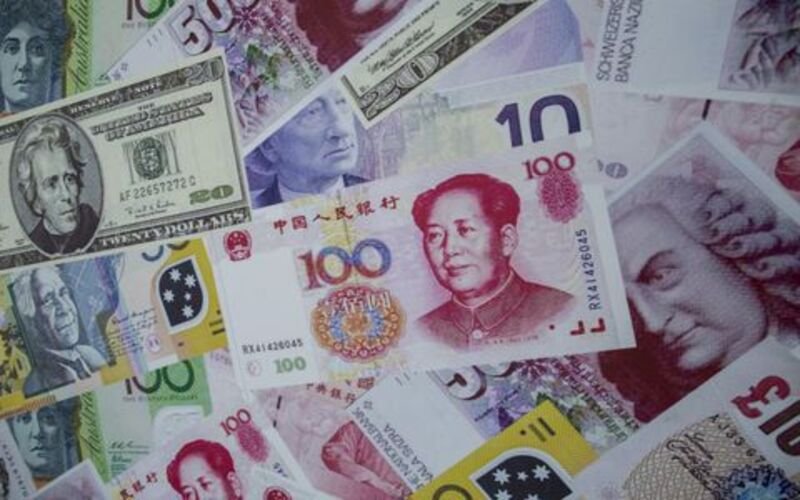A Friday poll found that China’s new yuan loans declined dramatically in July due to weak credit demand and seasonal reasons, even as the central bank boosted

An advertisement poster promoting China’s renminbi (RMB) or yuan , U.S. dollar and Euro exchange services is seen outside at foreign exchange store in Hong Kong, China
economic support.
According to the median estimate of 19 economists, Chinese banks issued 450 billion yuan ($62.80 billion) in net new yuan loans last month, down 79% from June’s 2.13 trillion.
However, the estimated additional loans would exceed the 345.9 billion yuan issued in the same month last year.
Bank lending often drops in July due to seasonal variables, analysts say.
The first half saw banks lend 13.27 trillion yuan, down from a record 15.73 trillion a year earlier.
In a note, Capital Economics analysts said year-on-year lending growth may have stabilized after seasonal factors likely reduced net new loans in July.
“Bank loan growth likely stabilized in July. Given the lagged effect on mortgage disbursements, the drop in home sales has eased in recent months, which should accelerate household lending, “they stated.
The survey predicted 8.8% growth in outstanding yuan loans last month, the same as in June.
According to the median estimate of 26 experts, broad M2 money supply growth in July was 6.1%, down from 6.2% in June.
After a volatile week, technology stocks led U.S. stocks higher on Friday.
In order to boost growth, the People’s Bank of China (PBOC) startled markets by slashing major interest rates, notably its medium-term lending facility (MLF) rate, last month.
At a meeting last week, the PBOC promised lower borrowing costs and more countercyclical changes.
A prolonged property crisis and low family income growth forecasts have hurt corporate investment and consumer confidence. Due to weather-related food shortages, exports slowed while consumer prices grew faster than predicted in July.
Next week’s July retail sales, industrial output, and investment figures will shed light on second-half 2024 economic momentum.
Any acceleration in government bond issuance might enhance total social finance a broad measure of economic credit and liquidity, which slowed to 8.1% in June from 8.4% in May.
From 3.3 trillion yuan in June, TSF is likely to decline to 1.1 trillion in July.





































Comment Template